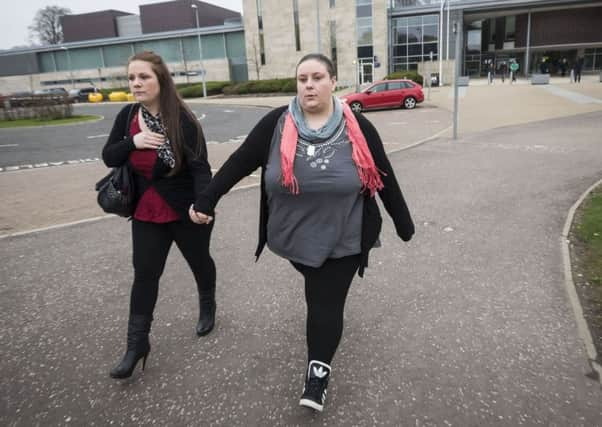Leaders: Liam Fee case exposes deeper flaws in the system


The horrific circumstances in which two-year-old Liam Fee was murdered by his mother and her partner are covered elsewhere in this newspaper, and it serves little purpose to repeat the traumatic events which have been described as one of Scotland’s worst ever recorded cases of child abuse. Desperately, some of the abuse that Liam and two other children suffered has been withheld by media outlets because it is too appalling to describe. By modern standards, that judgment speaks volumes about the cruelty and depravity of the Liam Fee case.
Those responsible for Liam’s death have been brought to justice, and a full inquiry will now take place to find why a system to protect vulnerable children failed so catastrophically.
Advertisement
Hide AdAdvertisement
Hide AdIt would be wrong to pre-judge that inquiry, but it is inevitable that questions will be asked about the response of the authorities. There were three flags which should have triggered the support that the helpless youngster needed. There must be a process which observes, recognises and responds to children in danger, and the evidence is that the checks in place had no consequence.
A system that was designed to prevent tragedy has failed, and although situations will occasionally occur which cannot be legislated for, we must question whether that system is fit for purpose. If it didn’t work, why?
The Liam Fee case will now become part of the debate over the Scottish Government’s controversial named person scheme, designed to support the well-being of every child up to the age of 18. Would the introduction of this scheme have saved Liam’s life? Many will argue that any system would be an improvement on one that has resulted in the abuse and eventual murder of a child, and any sytem designed to ensure no one ever “falls off the radar” again is highly desirable. But even named person comes with no guarantee of success. Perhaps there are other systems that would be better than named person, but we must acknowledge that no system will be perfect.
One of the key issues of the forthcoming inquiry will be evidence presented in court that no-one was assigned to Liam Fee when a member of staff went off sick. This suggests a lack of resources, which no system is ever going to overcome, however robust its measures may be otherwise. In addition, a resource problem also suggests there may be compromises when decisions are made over which cases to pursue. And we should also consider that those who make these pivotal judgments operate in an environment where the traumatic nature of child protection is estimated to limit their ability to do the job to eight years.
So before it is declared that heads must roll, all that has been in place until now was a disgrace, and that the named person scheme must start immediately, we must first make an honest judgment over whether social workers have the resource to carry out the enormous responsibilities they are tasked with. If the answer is no, then we can expect further tragedies, named person or not.
The privilege of peace
The scenes outside Britain’s most northerly cathedral – St Magnus’s on Orkney – were moving and poignant as tributes were paid to the thousands of sailors who lost their lives at the Battle of Jutland exactly 100 years before.
Britain’s grand fleet was based in Orkney in 1916 and sailed out to engage the German fleet in the biggest sea battle of the Great War. More than 6,000 British sailors lost their lives.
One of the compelling reasons why we should never forget that battle and the many others in two world wars was wonderfully articulated yesterday by Alexander Nichol. His grandfather John was killed in the battle when HMS Invincible exploded and went down with the loss of more than 1,000 men. He left a wife and eight children.
Advertisement
Hide AdAdvertisement
Hide AdMr Nicol said: “I’m fortunate enough to be a grandfather in my own right. My grandfather didn’t live to see any of his children get married, let alone to see any of his grandchildren. So to me it’s a privilege that he missed out on.”
That then is the privilege of peace. We, the current generations, have never had to send our children and loved ones off to war in their tens of thousands, off to their premature deaths, fulfilling their duty and paying the ultimate sacrifice so that those who came after them could enjoy freedom.
Our current armed forces bravely volunteer for service to help us, the population at large, enjoy the privileges of peace.
It is now unthinkable that Britain would again go to war with Germany. That is profound progress, for it gives us all – for the most part – peace and the great benefits it bestows on our lives. With that at the forefront of our minds, it seems instinctively wrong to take a backward step in European unity.